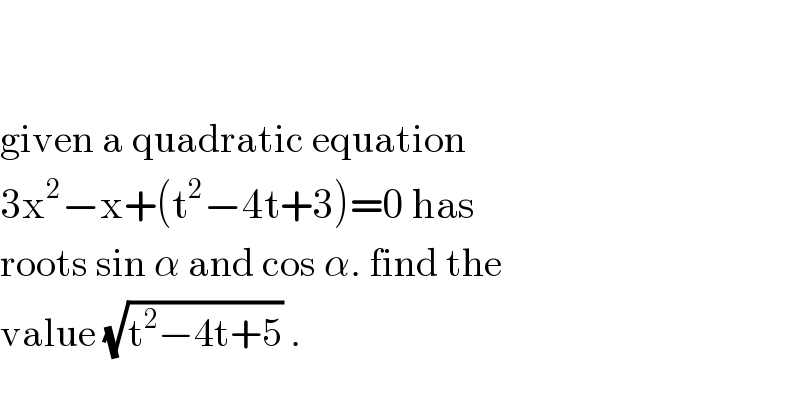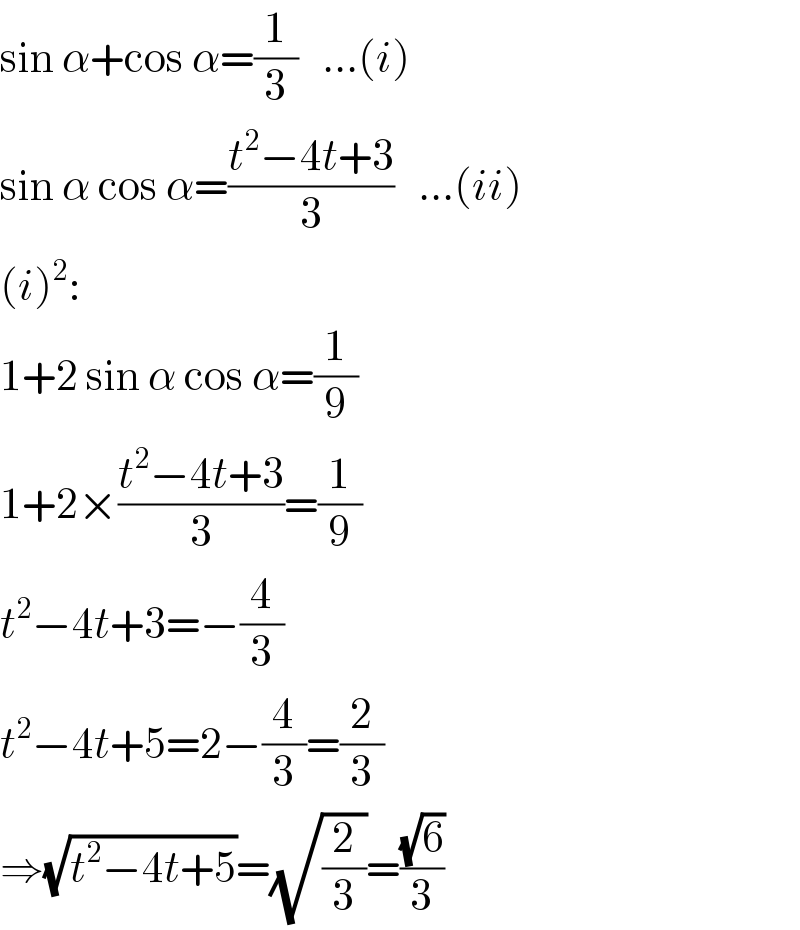
Question and Answers Forum
Question Number 77180 by jagoll last updated on 04/Jan/20

Answered by mr W last updated on 04/Jan/20

Commented by jagoll last updated on 04/Jan/20

| ||
Question and Answers Forum | ||
Question Number 77180 by jagoll last updated on 04/Jan/20 | ||
 | ||
Answered by mr W last updated on 04/Jan/20 | ||
 | ||
| ||
Commented by jagoll last updated on 04/Jan/20 | ||
 | ||